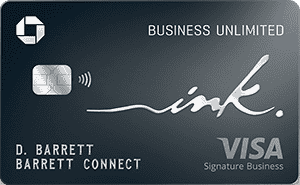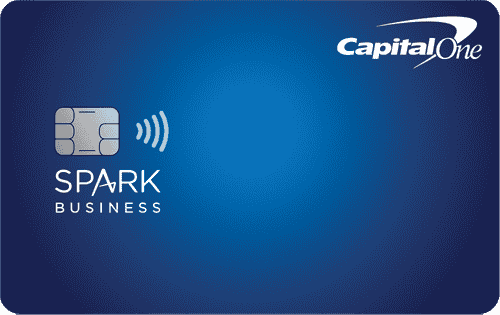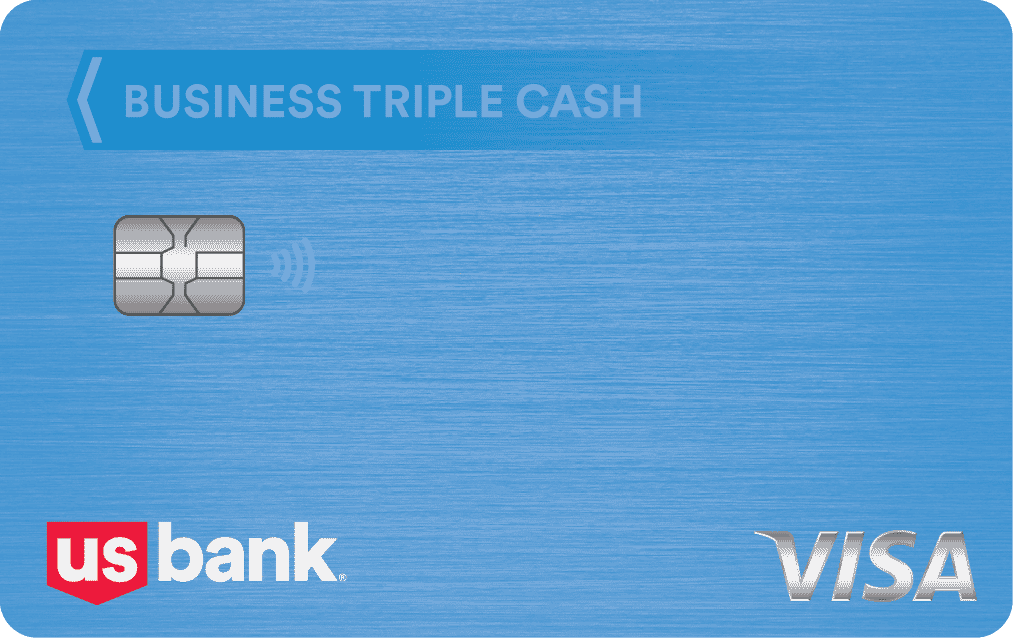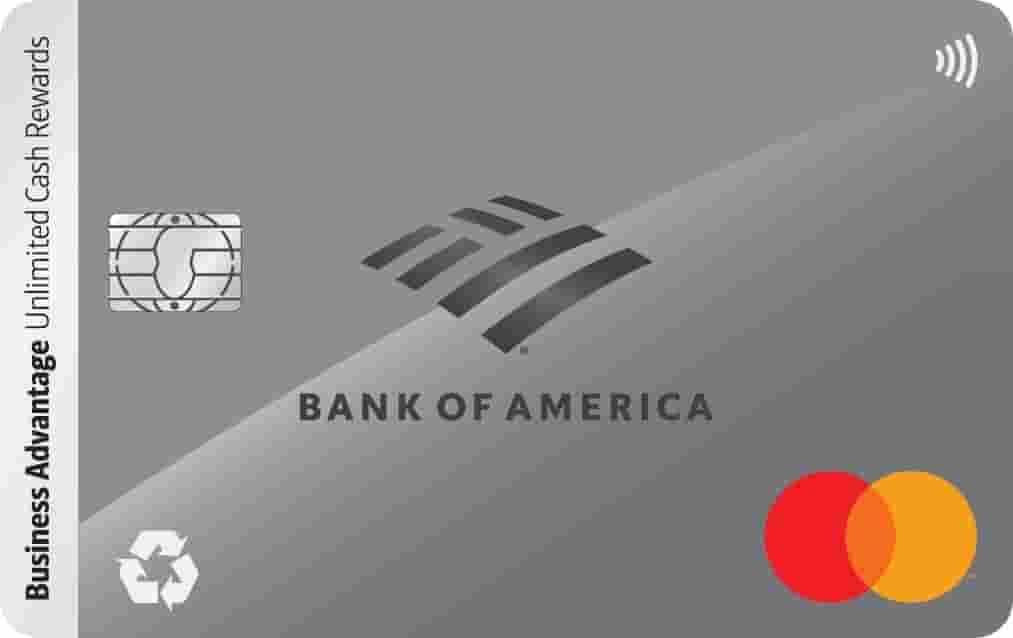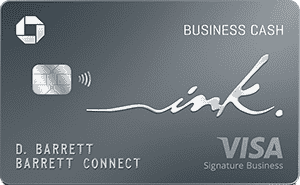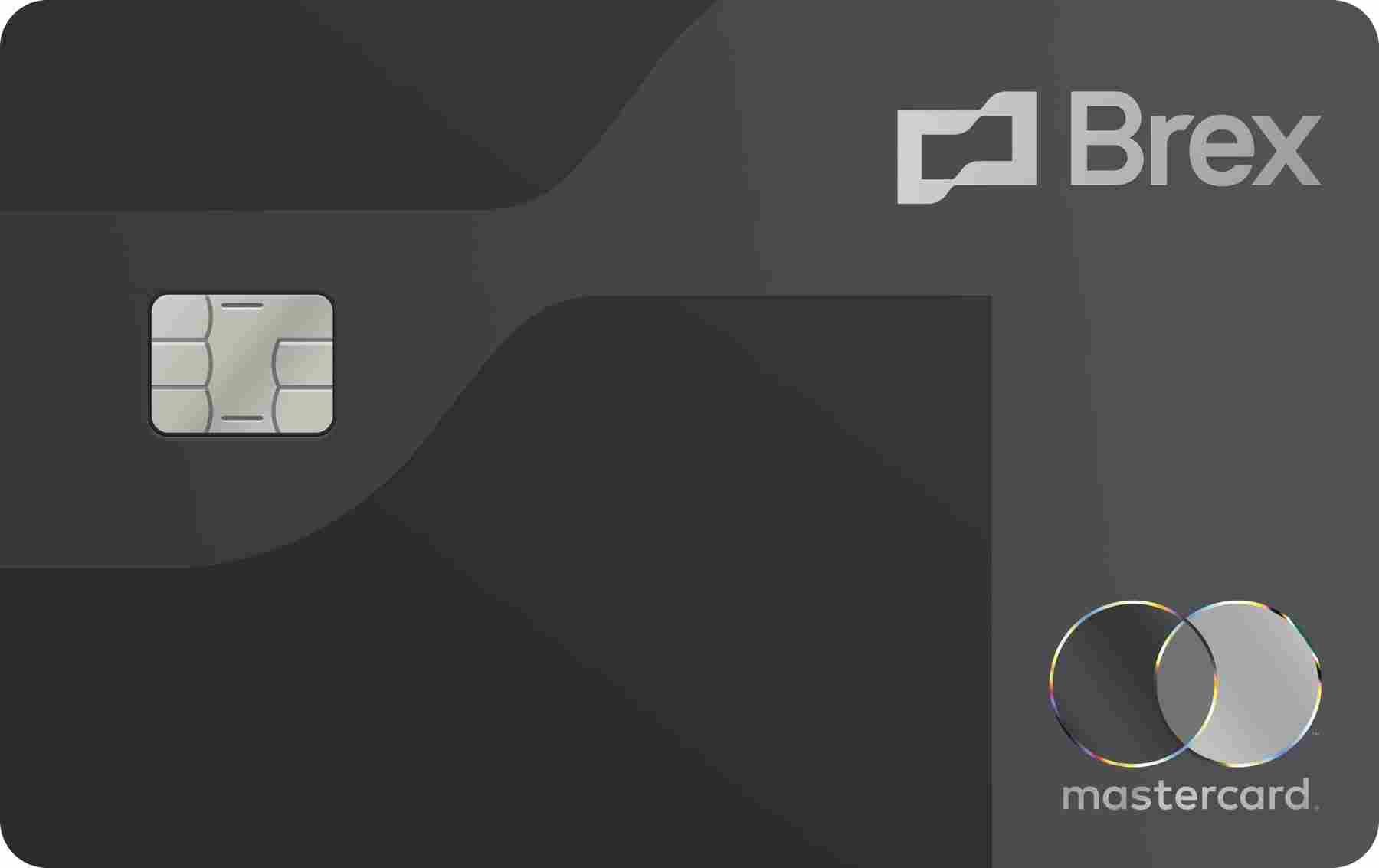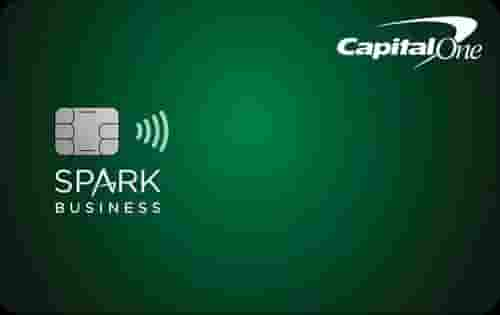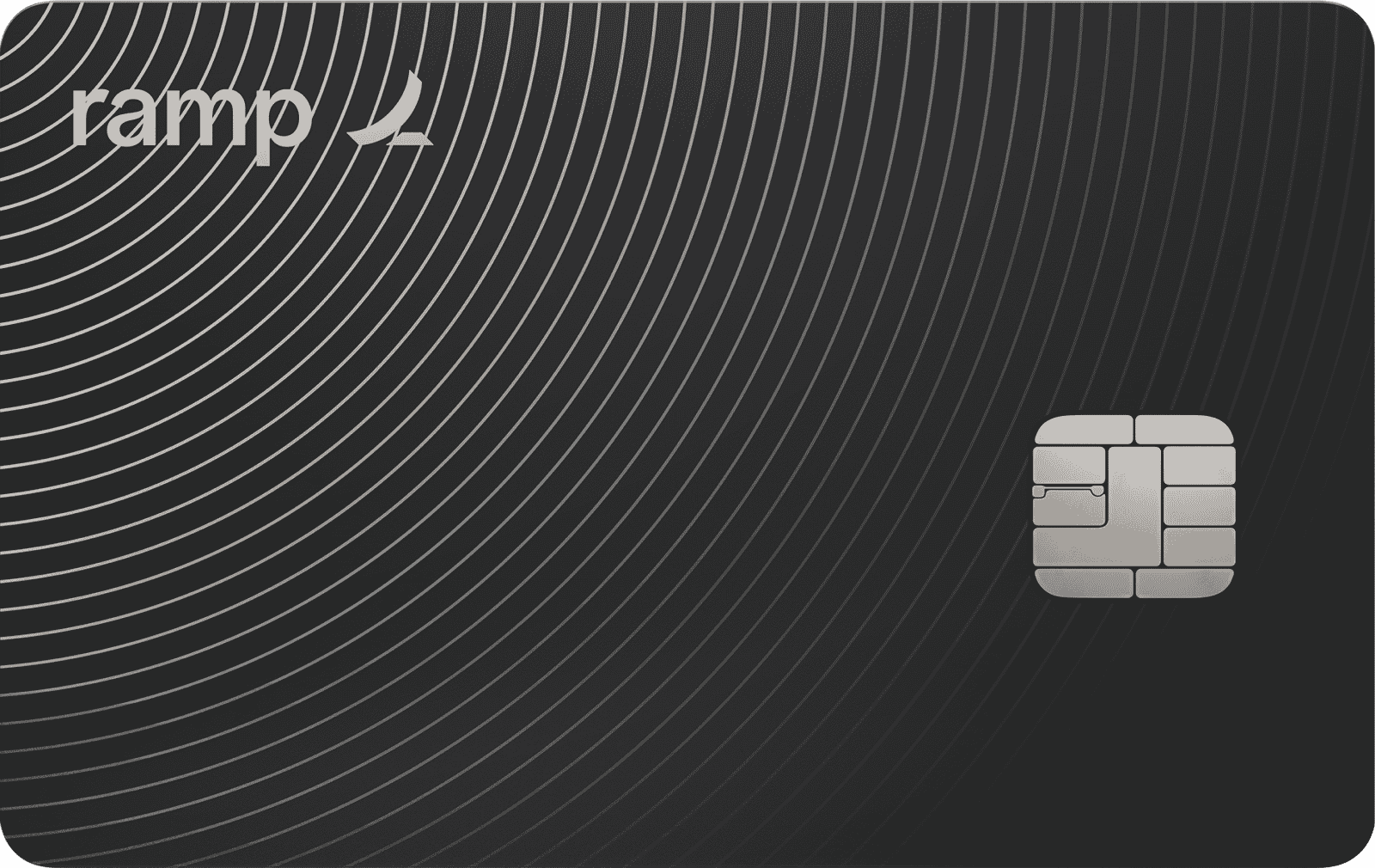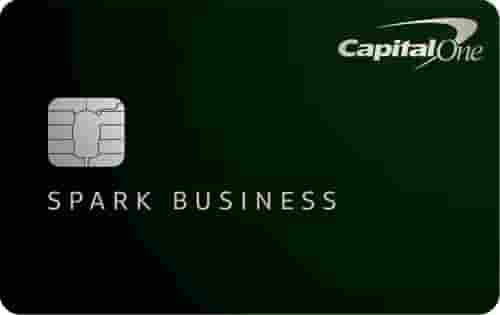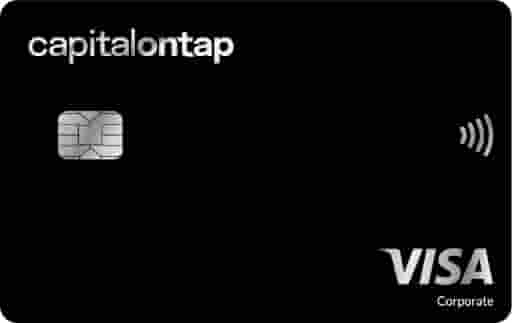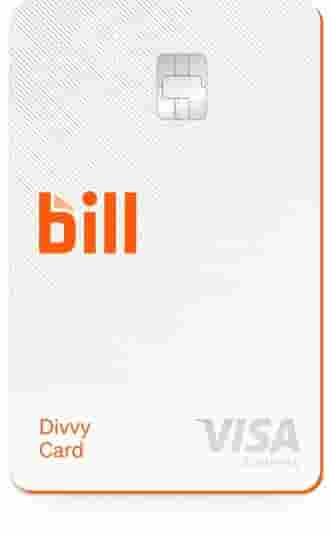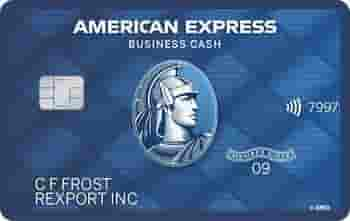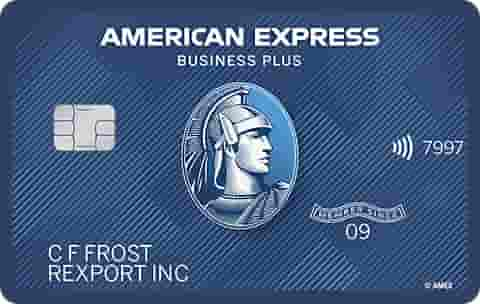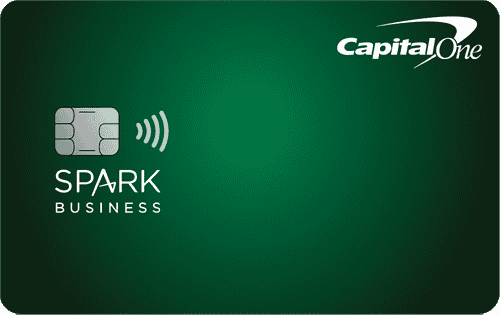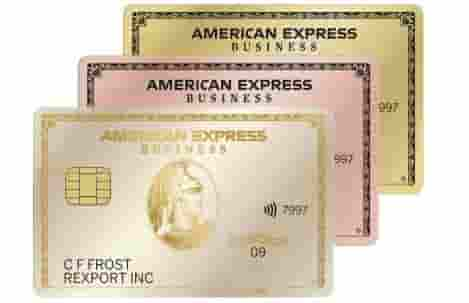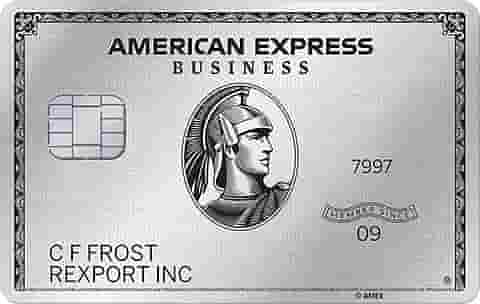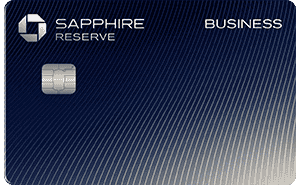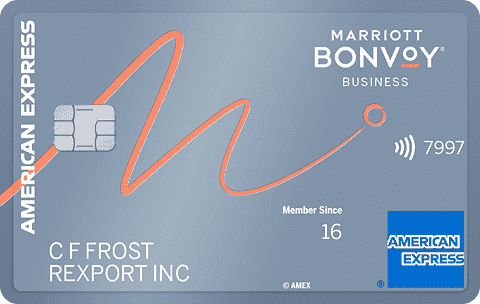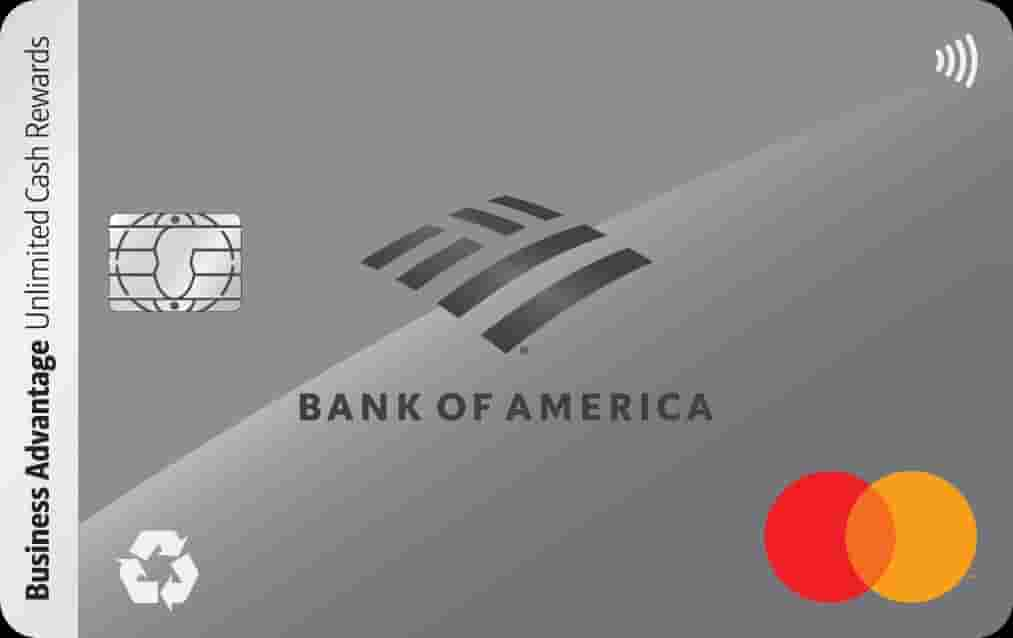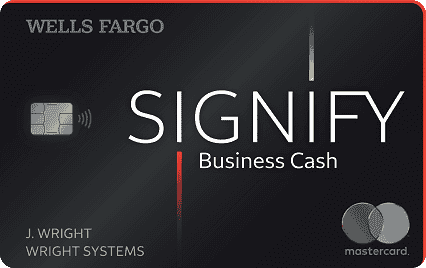Best Business Credit Cards of February 2026
Get personalized matches in seconds
Here are your recommended credit cards:
Ink Business Unlimited® Credit Card
Cashback
on Chase's website
Rates & Fees
Pros
- High rewards rate
- Intro APR period
- No reward caps
- New cardholder bonus offer
Cons
- No bonus categories
- Earn $750 bonus cash back after you spend $6,000 on purchases in the first 3 months from account opening
- Earn unlimited 1.5% cash back on every purchase made for your business
- No Annual Fee
- Redeem rewards for cash back, gift cards, travel and more through Chase Ultimate Rewards®.
- Earn rewards faster with employee cards at no additional cost. Set individual spending limits for greater control.
- Round-the-clock monitoring for unusual credit card purchases
- With Zero Liability you won't be held responsible for unauthorized charges made with your card or account information.
- 0% introductory APR for 12 months on purchases
- Earn 5% total cash back on Lyft rides through 9/30/27.
- Member FDIC
Rates & Fees
Ink Business Unlimited® Credit Card
Cashback
on Chase's website
Rates & Fees
Pros
- High rewards rate
- Intro APR period
- No reward caps
- New cardholder bonus offer
Cons
- No bonus categories
- Earn $750 bonus cash back after you spend $6,000 on purchases in the first 3 months from account opening
- Earn unlimited 1.5% cash back on every purchase made for your business
- No Annual Fee
- Redeem rewards for cash back, gift cards, travel and more through Chase Ultimate Rewards®.
- Earn rewards faster with employee cards at no additional cost. Set individual spending limits for greater control.
- Round-the-clock monitoring for unusual credit card purchases
- With Zero Liability you won't be held responsible for unauthorized charges made with your card or account information.
- 0% introductory APR for 12 months on purchases
- Earn 5% total cash back on Lyft rides through 9/30/27.
- Member FDIC
Rates & Fees
Capital One Venture X Business
Miles
Miles
on Capital One's website
Rates & Fees
Pros
- High rewards rate
- New cardholder bonus offer
- Priority Pass lounge membership
- Annual travel credit, bonus miles
- Statement credit for Global Entry, TSA PreCheck®
Cons
- High annual fee
- Requires excellent credit
- Balance must be paid in full every month
- Earn 150,000 bonus miles once you spend $30,000 in the first 3 months from account opening
- Earn unlimited 2X miles on every purchase, everywhere—with no limits or category restrictions
- Earn 10X miles on hotels and rental cars and 5X miles on flights and vacation rentals booked through Capital One Business Travel
- With no preset spending limit, enjoy big purchasing power that adapts so you can spend more and earn more rewards
- Empower your teams to make business purchases while earning rewards on their transactions, with free employee and virtual cards. Plus, automatically sync your transaction data with your accounting software and pay your vendors with ease
- Redeem your miles on flights, hotels and more. Plus, transfer your miles to any of the 15+ travel loyalty programs
- Every year, you'll get 10,000 bonus miles after your account anniversary date. Plus, receive an annual $300 credit for bookings made through Capital One Business Travel
- Receive up to a $120 credit for Global Entry or TSA PreCheck®. Enjoy access to 1,300+ airport lounges worldwide, including Capital One Lounge locations and Priority Pass™ lounges, after enrollment
- Enjoy a $100 experience credit and other premium benefits with every hotel and vacation rental booked from the Premier Collection
- This is a pay-in-full card, so your balance is due in full every month
- Top rated mobile app
Rates & Fees
Capital One Venture X Business
Miles
Miles
on Capital One's website
Rates & Fees
Pros
- High rewards rate
- New cardholder bonus offer
- Priority Pass lounge membership
- Annual travel credit, bonus miles
- Statement credit for Global Entry, TSA PreCheck®
Cons
- High annual fee
- Requires excellent credit
- Balance must be paid in full every month
- Earn 150,000 bonus miles once you spend $30,000 in the first 3 months from account opening
- Earn unlimited 2X miles on every purchase, everywhere—with no limits or category restrictions
- Earn 10X miles on hotels and rental cars and 5X miles on flights and vacation rentals booked through Capital One Business Travel
- With no preset spending limit, enjoy big purchasing power that adapts so you can spend more and earn more rewards
- Empower your teams to make business purchases while earning rewards on their transactions, with free employee and virtual cards. Plus, automatically sync your transaction data with your accounting software and pay your vendors with ease
- Redeem your miles on flights, hotels and more. Plus, transfer your miles to any of the 15+ travel loyalty programs
- Every year, you'll get 10,000 bonus miles after your account anniversary date. Plus, receive an annual $300 credit for bookings made through Capital One Business Travel
- Receive up to a $120 credit for Global Entry or TSA PreCheck®. Enjoy access to 1,300+ airport lounges worldwide, including Capital One Lounge locations and Priority Pass™ lounges, after enrollment
- Enjoy a $100 experience credit and other premium benefits with every hotel and vacation rental booked from the Premier Collection
- This is a pay-in-full card, so your balance is due in full every month
- Top rated mobile app
Rates & Fees
Capital One Spark Miles for Business
Miles
Miles
on Capital One's website
Rates & Fees
Pros
- High rewards rate
- New cardholder bonus offer
- No reward caps
- Statement credit for Global Entry, TSA PreCheck®
- Annual fee waived for first year
Cons
- Reports all card activity to consumer credit bureaus
- Does not include lounge access or automatic elite status
- Earn a one-time bonus of 50,000 miles – equal to $500 in travel – once you spend $4,500 on purchases within the first 3 months from account opening
- Earn unlimited 2X miles per dollar on every purchase, everywhere, no limits or category restrictions, and miles won't expire for the life of the account
- Unlimited 5X miles on hotels, vacation rentals and rental cars booked through Capital One's travel booking site
- Transfer your miles to 15+ travel loyalty programs
- Redeem your miles instantly for any travel-related purchases, from flights and hotels to ride-sharing services
- Receive up to a $120 credit for Global Entry or TSA PreCheck®
- $0 intro annual fee for the first year; $95 after that
- Free employee cards which also earn unlimited 2X miles from their purchases
- Top rated mobile app
Rates & Fees
Capital One Spark Miles for Business
Miles
Miles
on Capital One's website
Rates & Fees
Pros
- High rewards rate
- New cardholder bonus offer
- No reward caps
- Statement credit for Global Entry, TSA PreCheck®
- Annual fee waived for first year
Cons
- Reports all card activity to consumer credit bureaus
- Does not include lounge access or automatic elite status
- Earn a one-time bonus of 50,000 miles – equal to $500 in travel – once you spend $4,500 on purchases within the first 3 months from account opening
- Earn unlimited 2X miles per dollar on every purchase, everywhere, no limits or category restrictions, and miles won't expire for the life of the account
- Unlimited 5X miles on hotels, vacation rentals and rental cars booked through Capital One's travel booking site
- Transfer your miles to 15+ travel loyalty programs
- Redeem your miles instantly for any travel-related purchases, from flights and hotels to ride-sharing services
- Receive up to a $120 credit for Global Entry or TSA PreCheck®
- $0 intro annual fee for the first year; $95 after that
- Free employee cards which also earn unlimited 2X miles from their purchases
- Top rated mobile app
Rates & Fees
U.S. Bank Triple Cash Rewards Visa® Business Card
Cashback
on U.S. Bank's website
Rates & Fees
Pros
- High cash-back bonus rate
- No cap on bonus rewards
- Intro APR period on purchases and balance transfers
- Reports to Dun & Bradstreet
- New cardholder bonus offer
Cons
- Low rate outside bonus categories
- Activity on employee cards does not count toward bonus spending requirement
- Earn $750 in cash back. Just spend $6,000 on the Account Owner's card in the first 180 days of opening your account.
- Earn 3% cash back on eligible purchases at gas and EV charging stations (transactions of $200 or less)*, office supply stores, cell phone service providers and restaurants (*excludes discount stores/supercenters and wholesale clubs).
- 1% cash back on all other eligible purchases.
- Earn 5% cash back on prepaid hotels and car rentals booked directly in the Travel Center when using your card.
- Take control of your card spend with U.S. Bank Spend Management—a game-changing platform for monitoring and managing business expenses.
- No limit on total cash back earned.
- Redeem Cash Rewards right away or save them for later. Cash Rewards do not expire as long as the account remains active.
- Earn an annual $100 statement credit for recurring software subscription expenses such as FreshBooks or QuickBooks.
- Terms and conditions apply.
Rates & Fees
U.S. Bank Triple Cash Rewards Visa® Business Card
Cashback
on U.S. Bank's website
Rates & Fees
Pros
- High cash-back bonus rate
- No cap on bonus rewards
- Intro APR period on purchases and balance transfers
- Reports to Dun & Bradstreet
- New cardholder bonus offer
Cons
- Low rate outside bonus categories
- Activity on employee cards does not count toward bonus spending requirement
- Earn $750 in cash back. Just spend $6,000 on the Account Owner's card in the first 180 days of opening your account.
- Earn 3% cash back on eligible purchases at gas and EV charging stations (transactions of $200 or less)*, office supply stores, cell phone service providers and restaurants (*excludes discount stores/supercenters and wholesale clubs).
- 1% cash back on all other eligible purchases.
- Earn 5% cash back on prepaid hotels and car rentals booked directly in the Travel Center when using your card.
- Take control of your card spend with U.S. Bank Spend Management—a game-changing platform for monitoring and managing business expenses.
- No limit on total cash back earned.
- Redeem Cash Rewards right away or save them for later. Cash Rewards do not expire as long as the account remains active.
- Earn an annual $100 statement credit for recurring software subscription expenses such as FreshBooks or QuickBooks.
- Terms and conditions apply.
Rates & Fees
Ink Business Preferred® Credit Card
Points
Points
on Chase's website
Rates & Fees
Pros
- New cardholder bonus offer
- Transfer partners
Cons
- Does not include lounge access or travel credits
- Earn 100k bonus points after you spend $8,000 on purchases in the first 3 months from account opening.
- Earn 3 points per $1 on the first $150,000 spent on travel and select business categories each account anniversary year. Earn 1 point per $1 on all other purchases
- Earn 5x total points on Lyft rides through 9/30/27.
- With Zero Liability you won't be held responsible for unauthorized charges made with your card or account information.
- Redeem points for cash back, gift cards, travel and more - your points don't expire as long as your account is open
- Go further when you book with Chase Travel℠. Enjoy competitive rates, seamless booking and premium benefits.
- Purchase Protection covers your new purchases for 120 days against damage or theft up to $10,000 per claim and $50,000 per account.
- Receive complimentary access to DashPass by DoorDash.
- Member FDIC
Rates & Fees
Ink Business Preferred® Credit Card
Points
Points
on Chase's website
Rates & Fees
Pros
- New cardholder bonus offer
- Transfer partners
Cons
- Does not include lounge access or travel credits
- Earn 100k bonus points after you spend $8,000 on purchases in the first 3 months from account opening.
- Earn 3 points per $1 on the first $150,000 spent on travel and select business categories each account anniversary year. Earn 1 point per $1 on all other purchases
- Earn 5x total points on Lyft rides through 9/30/27.
- With Zero Liability you won't be held responsible for unauthorized charges made with your card or account information.
- Redeem points for cash back, gift cards, travel and more - your points don't expire as long as your account is open
- Go further when you book with Chase Travel℠. Enjoy competitive rates, seamless booking and premium benefits.
- Purchase Protection covers your new purchases for 120 days against damage or theft up to $10,000 per claim and $50,000 per account.
- Receive complimentary access to DashPass by DoorDash.
- Member FDIC
Rates & Fees
Bank of America® Business Advantage Unlimited Cash Rewards Mastercard® credit card
Cashback
on Bank of America's website
Pros
- New cardholder bonus offer
- High rewards rate
- Bonus rewards for qualifying Preferred Rewards for Business members
Cons
- Requires excellent credit
- Multiple accounts, high combined balance required to get Preferred Rewards bonus
- Get a $300 online statement credit after you make at least $3,000 in purchases in the first 90 days of your account opening.
- Earn unlimited 1.5% cash back on purchases, or join Preferred Rewards for Business for no fee, and earn up to an unlimited 2.62% cash back on all purchases if you have a Bank of America® business checking account and qualify for Preferred Rewards for Business Platinum Honors tier.
- No annual cap and cash rewards don’t expire as long as your account remains open.
- No annual fee.
- Choose how to redeem your cash rewards – as a deposit into your Bank of America® checking or savings account, as a card statement credit or as a check mailed to you.
- 0% Introductory APR on purchases for your first 7 billing cycles. After the intro APR offer ends, a Variable APR that's currently 16.74% to 26.74% will apply.
- Contactless Cards - the security of a chip card, with the convenience of a tap.
- This offer may not be available if you leave this page or visit our website. You can take advantage of this offer when you apply now.
Bank of America® Business Advantage Unlimited Cash Rewards Mastercard® credit card
Cashback
on Bank of America's website
Pros
- New cardholder bonus offer
- High rewards rate
- Bonus rewards for qualifying Preferred Rewards for Business members
Cons
- Requires excellent credit
- Multiple accounts, high combined balance required to get Preferred Rewards bonus
- Get a $300 online statement credit after you make at least $3,000 in purchases in the first 90 days of your account opening.
- Earn unlimited 1.5% cash back on purchases, or join Preferred Rewards for Business for no fee, and earn up to an unlimited 2.62% cash back on all purchases if you have a Bank of America® business checking account and qualify for Preferred Rewards for Business Platinum Honors tier.
- No annual cap and cash rewards don’t expire as long as your account remains open.
- No annual fee.
- Choose how to redeem your cash rewards – as a deposit into your Bank of America® checking or savings account, as a card statement credit or as a check mailed to you.
- 0% Introductory APR on purchases for your first 7 billing cycles. After the intro APR offer ends, a Variable APR that's currently 16.74% to 26.74% will apply.
- Contactless Cards - the security of a chip card, with the convenience of a tap.
- This offer may not be available if you leave this page or visit our website. You can take advantage of this offer when you apply now.
Ink Business Cash® Credit Card
Cashback
on Chase's website
Rates & Fees
Pros
- Intro APR period
- New cardholder bonus offer
- High reward rate in bonus categories
Cons
- Low rate outside bonus categories
- Spending caps on bonus rewards
- Earn $750 when you spend $6,000 on purchases in the first three months after account opening
- Earn 5% cash back on the first $25,000 spent in combined purchases at office supply stores and on internet, cable and phone services each account anniversary year
- Earn 2% cash back on the first $25,000 spent in combined purchases at gas stations and restaurants each account anniversary year. Earn 1% cash back on all other purchases
- With Zero Liability you won't be held responsible for unauthorized charges made with your card or account information.
- No Annual Fee
- Redeem rewards for cash back, gift cards, travel and more through Chase Ultimate Rewards®.
- 0% introductory APR for 12 months on purchases
- Earn 5% total cash back on Lyft rides through 9/30/27.
- Member FDIC
Rates & Fees
Ink Business Cash® Credit Card
Cashback
on Chase's website
Rates & Fees
Pros
- Intro APR period
- New cardholder bonus offer
- High reward rate in bonus categories
Cons
- Low rate outside bonus categories
- Spending caps on bonus rewards
- Earn $750 when you spend $6,000 on purchases in the first three months after account opening
- Earn 5% cash back on the first $25,000 spent in combined purchases at office supply stores and on internet, cable and phone services each account anniversary year
- Earn 2% cash back on the first $25,000 spent in combined purchases at gas stations and restaurants each account anniversary year. Earn 1% cash back on all other purchases
- With Zero Liability you won't be held responsible for unauthorized charges made with your card or account information.
- No Annual Fee
- Redeem rewards for cash back, gift cards, travel and more through Chase Ultimate Rewards®.
- 0% introductory APR for 12 months on purchases
- Earn 5% total cash back on Lyft rides through 9/30/27.
- Member FDIC
Rates & Fees
Brex Card
Points
Points
on Brex's website
Pros
- No annual fee or foreign transaction fees
- New cardholder bonus offer
- No personal guarantee
- Card-level spending controls
Cons
- Complicated rewards structure
- High capital requirement for approval
- Daily repayment may be required
- Not available to sole proprietors
- Get 10,000 points when you spend $3,000 on a Brex Card within your first 3 months.
- No personal guarantee needed – Brex does not ask for a personal credit check or security deposit during the application.
- Credit limits 10-20x higher than traditional small business corporate cards.
- Minimum bank balance of $50,000 from professional investors may be required to qualify for Brex.
- Exclusive signup offers from the best products and tools for your business (e.g. AWS, Google Ads, WeWork, Salesforce) worth up to $150,000 in value.
- Earn points on every dollar spent with industry-leading multipliers: 7x on rideshare, 4x on Brex Travel, 3x on restaurants, 2x on software subscriptions and 1x on all other transactions.
- Earn 3x Brex Rewards points on all eligible Apple purchases through the link or your Brex dashboard.
- Miles transfer program to 7 airlines (including Singapore Airlines, Qantas, Air France, and more) and their loyalty programs, giving Brex customers access to book travel across all of the major global airline alliances - Star Alliance, Oneworld, and SkyTeam.
- 30-day charge card running on the Mastercard network. Enjoy global acceptance with no foreign transaction fees.
- Build business credit: Brex partners with Dun & Bradstreet and Experian to report your on-time payments.
- Make employee expenses seamless - automated receipt-capture and expense matching and reconciliation via text, email, and mobile app. Instantly add new users and set spending limits.
- Contactless pay with Apple Pay, Google Pay, and Samsung Pay.
- Simplify reconciliation with built-in integrations with QuickBooks, Xero, NetSuite, and more.
Brex Card
Points
Points
on Brex's website
Pros
- No annual fee or foreign transaction fees
- New cardholder bonus offer
- No personal guarantee
- Card-level spending controls
Cons
- Complicated rewards structure
- High capital requirement for approval
- Daily repayment may be required
- Not available to sole proprietors
- Get 10,000 points when you spend $3,000 on a Brex Card within your first 3 months.
- No personal guarantee needed – Brex does not ask for a personal credit check or security deposit during the application.
- Credit limits 10-20x higher than traditional small business corporate cards.
- Minimum bank balance of $50,000 from professional investors may be required to qualify for Brex.
- Exclusive signup offers from the best products and tools for your business (e.g. AWS, Google Ads, WeWork, Salesforce) worth up to $150,000 in value.
- Earn points on every dollar spent with industry-leading multipliers: 7x on rideshare, 4x on Brex Travel, 3x on restaurants, 2x on software subscriptions and 1x on all other transactions.
- Earn 3x Brex Rewards points on all eligible Apple purchases through the link or your Brex dashboard.
- Miles transfer program to 7 airlines (including Singapore Airlines, Qantas, Air France, and more) and their loyalty programs, giving Brex customers access to book travel across all of the major global airline alliances - Star Alliance, Oneworld, and SkyTeam.
- 30-day charge card running on the Mastercard network. Enjoy global acceptance with no foreign transaction fees.
- Build business credit: Brex partners with Dun & Bradstreet and Experian to report your on-time payments.
- Make employee expenses seamless - automated receipt-capture and expense matching and reconciliation via text, email, and mobile app. Instantly add new users and set spending limits.
- Contactless pay with Apple Pay, Google Pay, and Samsung Pay.
- Simplify reconciliation with built-in integrations with QuickBooks, Xero, NetSuite, and more.
Capital One Spark Cash
Cashback
on Capital One's website
Rates & Fees
Pros
- High rewards rate
- No foreign transaction fees
- New cardholder bonus offer
- No reward caps
Cons
- Requires excellent credit
- Reports all card activity to consumer credit bureaus
- No Intro APR period
- Earn a $1,000 cash bonus when you spend $10,000 within 3 months of account opening
- For businesses that want to earn 2% cash back on all purchases with the familiarity of a traditional credit line
- Earn unlimited 2% cash back for your business on every purchase, everywhere, no limits or category restrictions
- $0 annual fee for the first year; $95 after that
- Free employee cards, which also earn unlimited 2% cash back on all purchases
- Rewards won’t expire for the life of the account, and you can redeem your cash back for any amount
- No foreign transaction fees
- Top rated mobile app
Rates & Fees
Capital One Spark Cash
Cashback
on Capital One's website
Rates & Fees
Pros
- High rewards rate
- No foreign transaction fees
- New cardholder bonus offer
- No reward caps
Cons
- Requires excellent credit
- Reports all card activity to consumer credit bureaus
- No Intro APR period
- Earn a $1,000 cash bonus when you spend $10,000 within 3 months of account opening
- For businesses that want to earn 2% cash back on all purchases with the familiarity of a traditional credit line
- Earn unlimited 2% cash back for your business on every purchase, everywhere, no limits or category restrictions
- $0 annual fee for the first year; $95 after that
- Free employee cards, which also earn unlimited 2% cash back on all purchases
- Rewards won’t expire for the life of the account, and you can redeem your cash back for any amount
- No foreign transaction fees
- Top rated mobile app
Rates & Fees
Ramp Card
Cashback
on Ramp's website
Pros
- No annual fee or foreign transaction fees
- No personal guarantee or credit check
- Direct integrations with tools and card-level spending controls
- Rewards do not expire
- Card-level spending controls
Cons
- Not available to sole proprietors
- Rewards rate varies and is determined per customer
- Get a $500 Ramp card upon approval. Limit one per new customer. No minimum spend required.
- Eliminate expense reports with automated receipt capture via SMS, mobile app, and integrations with Gmail, Lyft, and more.
- Control wasteful spending before it happens with built-in vendor and category restrictions.
- Complete visibility into corporate spending to help guide strategic business decisions.
- Seamless accounting and ERP integrations including QuickBooks, NetSuite, Xero, and more.
- Speed up monthly close with automated coding and reconciliation.
- Up to 30x higher credit limits than traditional business credit cards.
- Up to $350k partner rewards (AWS, UPS, Amazon Business, and more).
- No personal credit check or personal guarantee required.
- Up to 1.5% cashback on all card spend.
- Get approved in less than 48 hours.
- No annual fee or foreign transaction fees.
- Issue unlimited virtual cards and physical cards for each employee.
- Ramp is a corporate charge card powered by Visa. Businesses are required to pay the monthly balance in full by each statement period.
- Must have at least $25,000 in cash in any U.S. business bank account to qualify.
- Must have most of your operations and corporate spend in the US (although Ramp does support international transactions and will waive all related transaction fees).
- Ramp is only available to corporations, LLCs and limited partnerships. Individuals, sole proprietorships and unregistered businesses are not eligible.
Ramp Card
Cashback
on Ramp's website
Pros
- No annual fee or foreign transaction fees
- No personal guarantee or credit check
- Direct integrations with tools and card-level spending controls
- Rewards do not expire
- Card-level spending controls
Cons
- Not available to sole proprietors
- Rewards rate varies and is determined per customer
- Get a $500 Ramp card upon approval. Limit one per new customer. No minimum spend required.
- Eliminate expense reports with automated receipt capture via SMS, mobile app, and integrations with Gmail, Lyft, and more.
- Control wasteful spending before it happens with built-in vendor and category restrictions.
- Complete visibility into corporate spending to help guide strategic business decisions.
- Seamless accounting and ERP integrations including QuickBooks, NetSuite, Xero, and more.
- Speed up monthly close with automated coding and reconciliation.
- Up to 30x higher credit limits than traditional business credit cards.
- Up to $350k partner rewards (AWS, UPS, Amazon Business, and more).
- No personal credit check or personal guarantee required.
- Up to 1.5% cashback on all card spend.
- Get approved in less than 48 hours.
- No annual fee or foreign transaction fees.
- Issue unlimited virtual cards and physical cards for each employee.
- Ramp is a corporate charge card powered by Visa. Businesses are required to pay the monthly balance in full by each statement period.
- Must have at least $25,000 in cash in any U.S. business bank account to qualify.
- Must have most of your operations and corporate spend in the US (although Ramp does support international transactions and will waive all related transaction fees).
- Ramp is only available to corporations, LLCs and limited partnerships. Individuals, sole proprietorships and unregistered businesses are not eligible.
Capital One Spark Cash Plus
Cashback
on Capital One's website
Rates & Fees
Pros
- High rewards rate
- No preset spending limit
- No foreign transaction fees
- New cardholder bonus offer
Cons
- High annual fee
- Balance must be paid in full every month
- High spending requirement to hit bonuses
- Requires excellent credit
- Earn a one-time cash bonus of $2,000 once you spend $30,000 in the first 3 months
- Earn an additional $2,000 cash bonus for every $500K spent during the first year. You can earn this bonus multiple times over the course of year 1!
- Earn unlimited 2% cash back on every purchase, everywhere—with no limits or category restrictions
- Enjoy big purchasing power so you can spend more and earn more rewards. The Spark Cash Plus card has no preset spending limit, so it can adapt to your needs based on your spending behavior, payment history, credit profile and other factors
- Earn unlimited 5% cash back on hotels and rental cars booked through Capital One's travel booking site
- Streamline your accounts payable process, employee spending, and more from your online account with free business management tools
- Empower your teams to make business purchases while you earn rewards from their transactions with free employee and virtual cards
- $150 annual fee - Spend $150,000 annually and Capital One will refund this fee every year
- Spark Cash Plus has no APR because your balance is due in full every month
- For businesses that need large spending capacity and want to maximize cash back
- Top rated mobile app
Rates & Fees
Capital One Spark Cash Plus
Cashback
on Capital One's website
Rates & Fees
Pros
- High rewards rate
- No preset spending limit
- No foreign transaction fees
- New cardholder bonus offer
Cons
- High annual fee
- Balance must be paid in full every month
- High spending requirement to hit bonuses
- Requires excellent credit
- Earn a one-time cash bonus of $2,000 once you spend $30,000 in the first 3 months
- Earn an additional $2,000 cash bonus for every $500K spent during the first year. You can earn this bonus multiple times over the course of year 1!
- Earn unlimited 2% cash back on every purchase, everywhere—with no limits or category restrictions
- Enjoy big purchasing power so you can spend more and earn more rewards. The Spark Cash Plus card has no preset spending limit, so it can adapt to your needs based on your spending behavior, payment history, credit profile and other factors
- Earn unlimited 5% cash back on hotels and rental cars booked through Capital One's travel booking site
- Streamline your accounts payable process, employee spending, and more from your online account with free business management tools
- Empower your teams to make business purchases while you earn rewards from their transactions with free employee and virtual cards
- $150 annual fee - Spend $150,000 annually and Capital One will refund this fee every year
- Spark Cash Plus has no APR because your balance is due in full every month
- For businesses that need large spending capacity and want to maximize cash back
- Top rated mobile app
Rates & Fees
Capital on Tap Business Credit Card
on Capital on Tap's website
Pros
- High rewards rate
- No reward caps
- Available with fair credit
- No annual fee.
- No foreign transaction fees.
Cons
- Not available to sole proprietors, charities or nonprofits
- Must enroll in automatic payments
- Potential for very high APR
- No new cardholder bonus offer
- 1.5% rewards on all spend, no caps or restrictions
- $0 annual fee
- No foreign exchange fees
- APRs range from 17.24%-79.74% variable
- Unlimited cards for your employees
- Capital on Tap Business Credit Cards are issued by WebBank
Capital on Tap Business Credit Card
on Capital on Tap's website
Pros
- High rewards rate
- No reward caps
- Available with fair credit
- No annual fee.
- No foreign transaction fees.
Cons
- Not available to sole proprietors, charities or nonprofits
- Must enroll in automatic payments
- Potential for very high APR
- No new cardholder bonus offer
- 1.5% rewards on all spend, no caps or restrictions
- $0 annual fee
- No foreign exchange fees
- APRs range from 17.24%-79.74% variable
- Unlimited cards for your employees
- Capital on Tap Business Credit Cards are issued by WebBank
BILL Divvy Corporate Card
Points
on BILL Spend & Expense's website
Pros
- No annual fee
- Card-level spending controls
- No personal guarantee
- Available to sole proprietors
Cons
- Complicated rewards structure with limits on redemption
- Rewards rate varies depending on user activity
- Earn up to 7x rewards on restaurants and 5x on hotels with weekly billing. Terms apply.
- Credit lines up to $15 million but based on revenue, cash balance, business history and personal and business credit score.
- No annual fee or foreign transaction fees.
- Unlimited free virtual cards.
- Spend management platform allows business owners to easily set and adjust individual and team budgets.
BILL Divvy Corporate Card
Points
on BILL Spend & Expense's website
Pros
- No annual fee
- Card-level spending controls
- No personal guarantee
- Available to sole proprietors
Cons
- Complicated rewards structure with limits on redemption
- Rewards rate varies depending on user activity
- Earn up to 7x rewards on restaurants and 5x on hotels with weekly billing. Terms apply.
- Credit lines up to $15 million but based on revenue, cash balance, business history and personal and business credit score.
- No annual fee or foreign transaction fees.
- Unlimited free virtual cards.
- Spend management platform allows business owners to easily set and adjust individual and team budgets.
Let’s start with your credit. What is your personal credit score?
What’s most important to you in a new business card?
Is a 0% intro APR period a priority for you?
